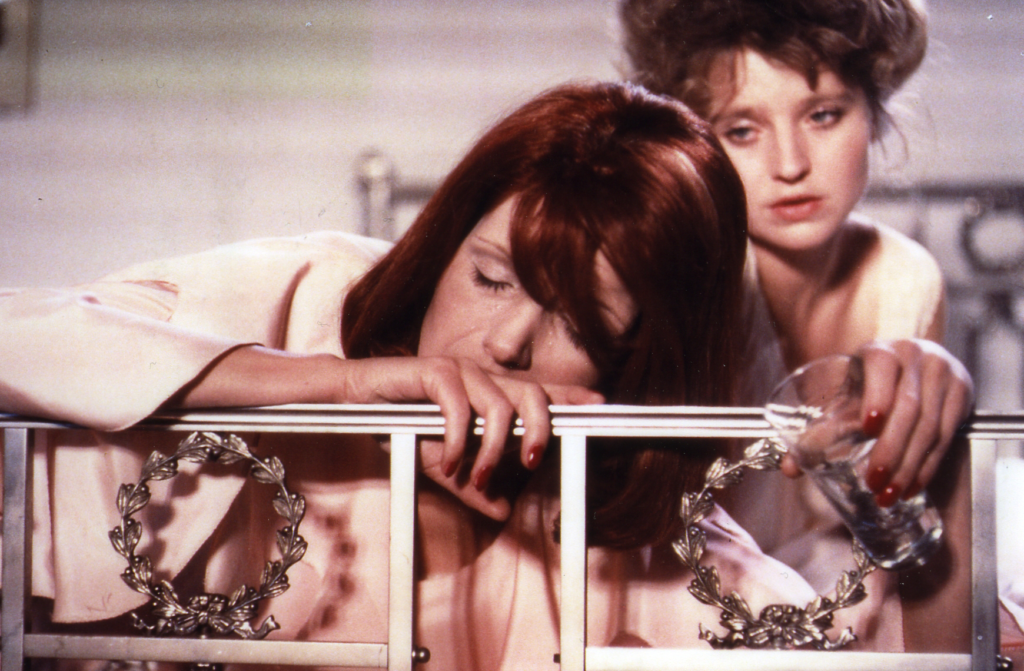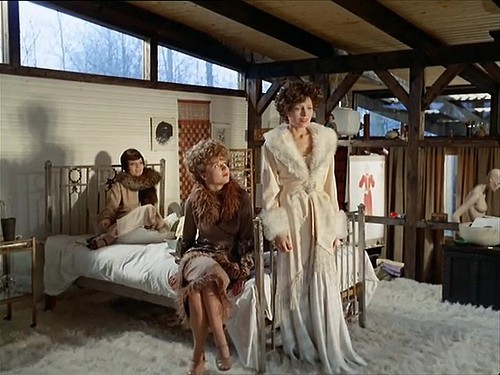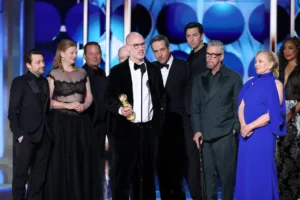‘The Bitter Tears of Petra von Kant’ Review: An Eccentric Rendering of a Tormented Romance

Photo Courtesy of CRITERION
★★★★★
The crude dynamics of humanistic narcissism
The transitional alterations of a screenplay “written for the stage” to one “written for the screen” are quite compatible in profound manners as well as disparate in others. A director or screenwriter who subjects themself to such an arduous concept appears to be conceivable exclusively by the auteurs who have a distinct vision or belief behind how to concisely translate a narrative from physical visions to optical ones. It goes leagues past the brains of any casual director who looks to transfix their audience through argumentative archetypes who may not be concocted to bend to the wills and whims of its deserved ideology. However, certain cinematic notions embody the thematic statement which entails more minute tailoring in order to shed light upon its cinematographic potential. Furthermore, Rainer Werner Fassbinder has masterfully plucked the paramount strings needed to produce a harmonizing tone of emotional phenomena. Each one of his divisive tales reveals a story of a thought-provoking nature that exceeds the normality of uniform, arthouse cinema. And of all the dark, whimsical narratives that have spurred from the steely-eyed mind of Fassbinder, “The Bitter Tears of Petra von Kant” may simply the most prime representation of his cataclysmic, theoretical subconscious denoting its astute peak.
Amongst each of the four prime sequences throughout “The Bitter Tears of Petra von Kant,” the thematic outline only becomes bolder. Rainer Werner Fassbinder’s fine-toothed vision for a philosophically-driven piece subtly unravels and there is a distinct revelation as to why his impact has only accentuated over the recent decades. I, personally, was absolutely mesmerized at how meticulous, in the aspect of depth, each individual frame appeared. “The Bitter Tears of Petra von Kant” is a clear testament that caters to the idea in which Rainer Werner Fassbinder is a visual storyteller. He uproots each one of his demoralizingly murky works of art to a place of pure sorrow, but the distinction within each film is how the true greed lies within the protagonistic lineage. Moreover, this is a piece that grinds its teeth into the internal ideology of narcissism. And in every instance at which the core context revels in its conceited, self-appraising face, Fassbinder turns the nozzle to a degree of extraordinary, visual ingenuity as his characters alter to a climatically optimal level. Subsequently, the fine-print of the script almost becomes obsolete as the character arcs have acquired such a quintessential value that the superlative fictional construct mirrors reality.

Additionally, “The Bitter Tears of Petra von Kant” recollects upon the deficiencies amidst modern society from Rainer Werner Fassbinder who inks his moniker as one of the most humanistic personas in all of film. It’s truly a vigorous test to fault any minute subtexts within a film of such personified morals. It’s challenging, in general, to even pinpoint a single perspective or implemented story tactic that presents a semblance of limitation. Furthermore, Fassbinder rests his theories of lovelorn individuals upon the postulations of solitude, love, and the claustrophobic feelings generated by emotional codependency. Primarily, the solitude facet is conceptualized through the frames within Petra’s bedroom as it maximizes the dramatic tension while serving as a mirror for her own entrapment. And through this scope, the artistic expression absolutely floored me.
And in the end, Fassbinder’s methodical conscience gravitates in the direction of a story that borders the inner core of humanistic desires. It’s so sudden, yet so impactful with how vindictive each individual character within his theatrical or cinematic works appears. However, there’s no “happily ever after” in-sight; every simplistic performance depicted appears so startlingly realistic, yearning for the painstaking dissection of time and place through a synchronic outlook. It isn’t ostentatious, nor is it gorgeous, it’s solely tangible and nothing shy of pivotally shrewd.








